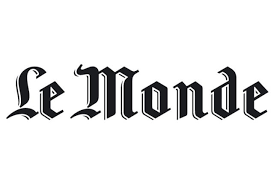Document type : article published in Le Monde
Author: Stéphane Foucart
Preview: In the second half of March, somewhere along the coast between Kerpape and Larmor-Plage in the Morbihan region of France, a wild boar took to the sea. The female launched herself into the waves, no doubt driven into the sea by an organized hunt taking place on land within the two communes. Driven by an unknown impulse, the wild sow took to the open sea. She swam almost ten kilometers before landing on the shores of the island of Groix, an ordeal made all the more difficult by the fact that she was about to farrow. The strangeness of this feat, its radical incongruity, raises questions that are no less unusual. What goes through the head of a lone wild sow, lost at sea, tumbled by the swell? What emotions does she feel? Is she afraid, and how does she experience them? Does she hesitate, after a while, to turn back? Does she experience something resembling joy when she finally sees land on the horizon? The saga of this wild sow takes us back to the most human quality we can project onto animals: the uniqueness of the individual, expressed through the courage to explore, to confront the unknown, the fierceness with which we fight for our lives and, even more, for the lives we are about bring into the world. As soon as she arrived in Groix, the sow hid in a clump of brambles and gave birth to three young. On Monday March 25, the daily newspaper Ouest-France had barely had time to print the story before members of the local hunters' association quietly arrived to kill all the members of this little group - the mother and her three young.
The big political questions Readers didn't need to be signed up members of the Parti Animaliste to be troubled by this local story. In fact, Ouest-France was unable to cover it in a short article, instead devoting no fewer than three articles to the story. What is disturbing, of course, is the glaring discrepancy between the energy expended by the wild sow to survive and save her young - and which, for some, lends her a sort of humanity - and the casual, thoughtless brutality with which her death was ultimately delivered. This isn't a sob story for the soft-hearted masses. Behind our treatment of animals, behind the motivations for and manner of their killing, there can often lurk big political facts. And this is all the more so, given that we now know with certainty that there is no transition scenario that does not involve profound changes in our relationship with animals. (Remainder of article accessible to subscribers only)



